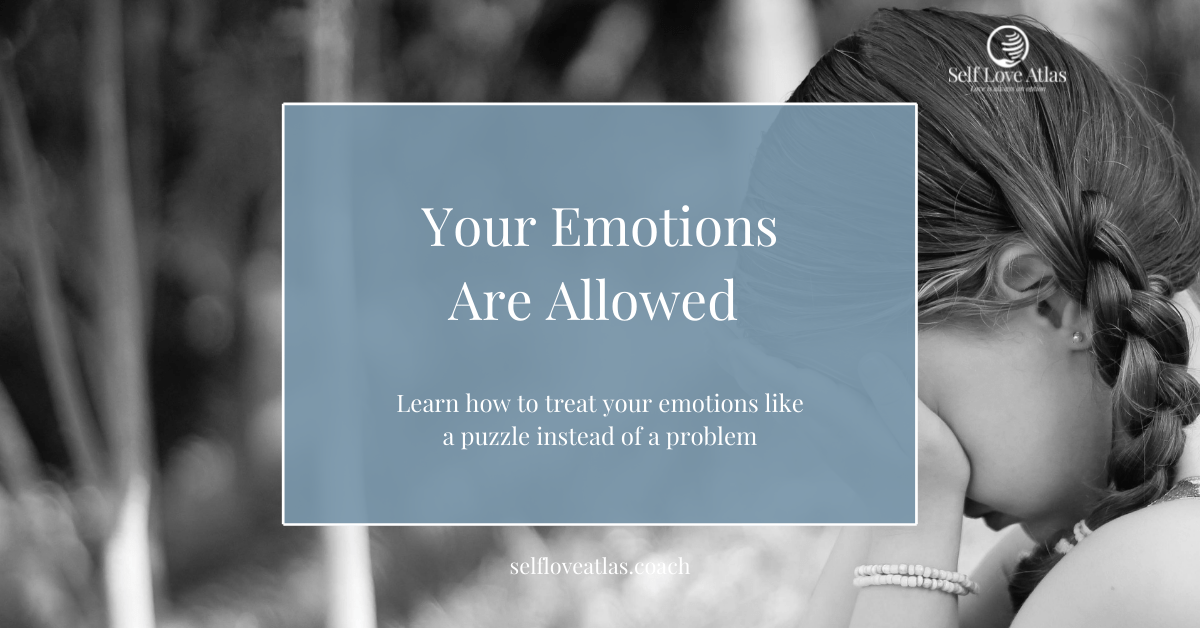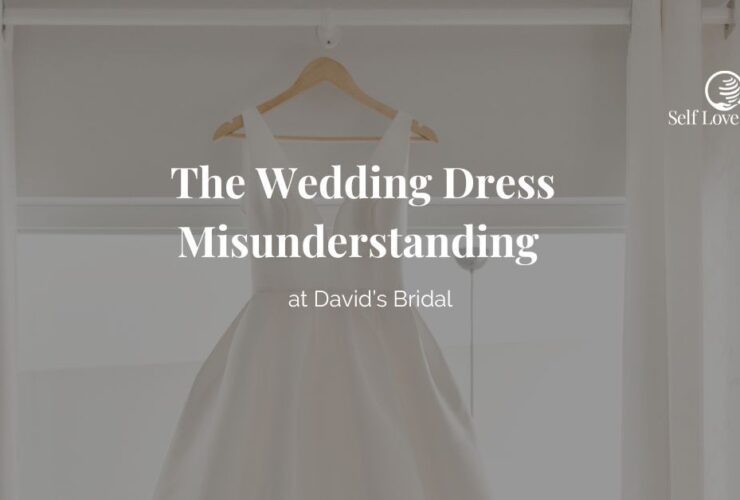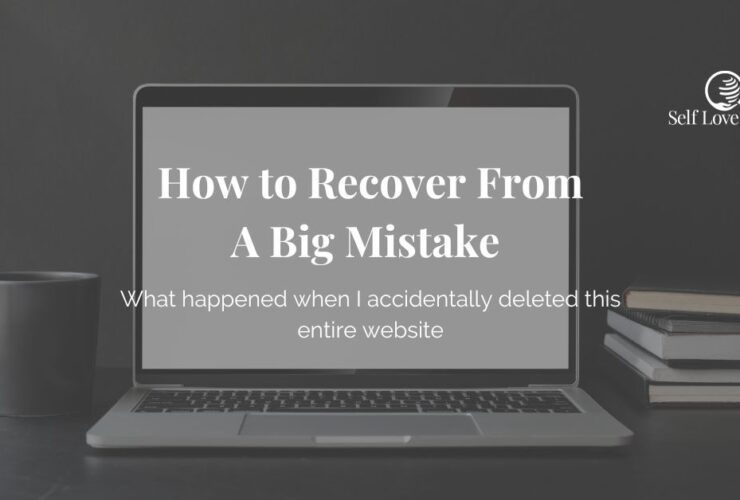Your Emotions Are Allowed
When you were a young child, what did the people around you teach you about your own emotions? Were you told that they were useful? Useless? Irrational? Reactive? Valid? Or Unreasonable?
The labelling of emotions as “irrational” has led many people to suppress their feelings and conclude that they are “all bad.” But the truth is, there’s something about emotions that is highly intelligent, and because emotions are always present whether we like it or not, it’s really something worth learning about.

Daniel Goleman, the psychologist who wrote the book on Emotional Intelligence says, “The wisdom of emotions is a real thing.”
As it turns out, much of Goleman’s research on the brain shows that there is a part of our brains, somewhere in the basal ganglia, that summarizes emotional responses and decisions for us.
Because this part of the brain has no connection to the prefrontal cortex (the part of our brain that talks) and it is connected to our gastrointestinal tract, we experience our emotions via sensations in our bodies and gut feelings instead of through thoughts/observations.
Because emotions are unlike the other kinds of information we typically process, it’s easy to overlook and/or discredit them.
Many people conclude that their emotions “don’t make sense,” “are illogical,” or that they “shouldn’t be happening” simply because it can be difficult to understand why some of our emotions are happening.
But this assumption actually prevents us from gaining a better understanding of ourselves.
When we think “I shouldn’t be feeling this” we’re inclined to suppress and avoid thinking about our emotions instead of allowing ourselves to process them.
This cuts us off from processing the signals and information we’re receiving, and therefore prevents us from learning and growing from it.
Dan Goleman likes to say that, “all feelings are okay to have, however, only some reactions are okay.”
In short, this means that our feelings just “are” and being thoughtful about our emotions allows us to choose how we want to react to them.
When we know that feeling our feelings are acceptable and allowed, then we are much more likely to develop a deeper understanding of ourselves through processing those emotions. Which increases our chances of reacting well to our circumstances.
So while you may feel inclined to push away or ignore any emotions that are puzzling by labelling them as “nonsensical” or “unreasonable,” the alternative course of action (allowing them to exist and choosing to investigate them) is far more compassionate and helpful.
Processing your emotions is different from reacting to them.
Anytime we experience a feeling or emotion that doesn’t make sense to us, we have an opportunity to learn something about ourselves.
When you feel an emotion, it’s likely because your body (and more specifically, your gastrointestinal tract) is processing information that some parts of your brain don’t have access to.
So what if we treated our emotions as a puzzle instead of a problem?
What if instead of telling ourselves “I shouldn’t be feeling this way,” we asked a valid question, “Why am I feeling this way?”
If we perceive an emotion as a puzzle and not a problem, then we can ask ourselves questions to make sense of the complex information we’re receiving from our bodies and make an educated decision on how we want to react.

Typically, the best place to start is to ask “what exactly am I feeling right now?” Once you narrow that down for yourself, questions that begin with “why” are really helpful with this. I also like to ask myself “what does this remind me of?” because this may help me understand the broader context for the response I’m experiencing.
A Note About Triggers
Sometimes we may think our emotions don’t make sense because what we’re feeling doesn’t seem to match up with our present circumstances. But there’s a really good reason for this.
Our emotions can be connected to our past experiences, so if our circumstances somehow remind our bodies of something that has happened in the past, we may react emotionally as if the past experience is happening in the present moment, even if we don’t consciously remember the past event.
Anytime we experience a feeling or emotion that doesn’t make sense to us, we have an opportunity to learn something about ourselves.
Self Love Atlas
My dad told me that a few days ago he was listening to the song called “Feel So Good” by Chuck Mangione when he felt a strong wave of sadness wash over him. At first, the emotional response didn’t seem to make sense, but when he asked himself, “why does this make me feel this way?” and he investigated it, he realized that the song was topping the charts in May of 1978 two weeks after his mother’s passing.
So while “a song” bringing up a heavy sadness may not “make sense,” adding the context of the fact that the song was popular around the time he lost his mother (and therefore physically reminded him of the loss) certainly does. This sort of reaction is what’s called a “trigger.”
Everyone has triggers, regardless of how heavy or light their life experiences are.
The hard thing about triggers is that we often react before we get a chance to investigate the emotions, but that’s okay, this is definitely the kind of thing that takes practice and reflection to understand!
Whenever you encounter an emotional response that feels like an overreaction, ask yourself “Is there a chance this is a trigger for me?” and reflect back on past experiences that this moment might have similarities to.
Although gaining an understanding of our emotions doesn’t always justify an “overreaction,” it does help explain the emotional responses we experience. Reflecting on these responses will also help us understand ourselves better and help us decide if there’s anything we’d like to do to further process or to react differently in the future.
Takeaways
- All emotions are okay
- Meeting your emotional responses with curiosity will help you understand yourself better
- Allowing yourself to process your emotions is both compassionate and logical.
Did this post resonate with you? If so, I’d love to hear from you! Leave a comment or send me a message to share your thoughts. For more uplifting content, check out some other posts on my blog, follow me on instagram @morgan_barbret, or sign up for the Self Love Atlas Newsletter!
Cheers,
Morgan Rita Barbret






Feels So Good — A song I love and yet it conjures up incredibly conflicted emotions!
Enjoy!
https://youtu.be/V7dg8vRDM68